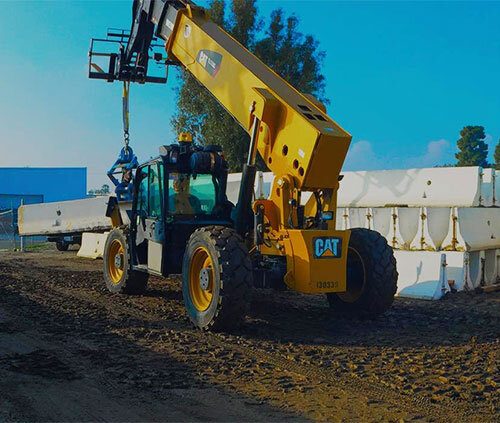Construction Equipment Rentals: Heavy Duty Machinery for Your Projects
Construction Equipment Rentals: Heavy Duty Machinery for Your Projects
Blog Article
Maximize Your Budget by Understanding the Prices Related To Building Equipment Leasings
Comprehending the complete range of expenses linked with construction devices services is essential for maximizing your spending plan. What strategies can be employed to successfully take care of these prices and ensure a much more effective rental experience?
Introduction of Rental Costs
When taking into consideration building tools leasings, recognizing the connected prices is critical for reliable budgeting and job preparation. Rental costs can differ considerably based upon several aspects, including devices kind, duration of leasing, and area. The initial rental charge often shows the tools's market demand and its connected functional capabilities, affecting the total expense.
In enhancement to the base rental price, ancillary expenses might arise, such as transportation charges, gas additional charges, and maintenance fees. It is crucial to account for these added costs to precisely assess the complete price of leasing equipment. The rental period can affect prices; longer leasings might certify for affordable prices, while temporary services could sustain greater daily charges.

Malfunction of Rental Rates
An extensive understanding of rental rates is important for specialists and job managers aiming to optimize their spending plans. Rental prices for building equipment generally contain several components, including base rates, time-based charges, and use costs.
Base rates are the core charges connected with the rental of the equipment, often established by the kind and size of the machinery. These prices can vary dramatically, affected by aspects such as equipment need, accessibility, and regional market patterns. Time-based costs, which may be daily, weekly, or monthly, offer to fit different job timelines and rental durations.
In addition, rental rates might include use charges, which are appropriate when tools is used past a specified limit, making sure that the rental company can make up wear and tear. Seasonal need changes can also impact rental prices, with peak building periods generally regulating greater prices.
In addition, comprehending the rental firm's policies pertaining to maintenance and insurance coverage can provide additional understanding into the general price structure. By assessing these components, specialists can make informed decisions, making certain the selection of rental devices straightens with both project demands and spending plan constraints.
Additional Fees to Think About
Comprehending the details of added costs is crucial for professionals to manage their general leasing costs successfully. Past the common rental prices, different extra costs can dramatically influence the overall expense of devices service. These costs often consist of distribution and pick-up fees, which can vary based on range and logistics entailed in moving the tools to and from the task site.
Furthermore, some rental companies may enforce gas surcharges if the equipment is returned with much less gas than when leased. It is also vital to know possible cleaning costs, especially for specialized equipment that calls for complete maintenance after use.

Thoroughly assessing the rental contract and clarifying these added charges upfront can aid specialists prevent unanticipated expenses and ensure that spending plans remain undamaged throughout the project lifecycle.
Repair And Maintenance Expenditures
Regular upkeep and repair costs are frequently forgotten elements that can dramatically influence the general price of building tools rentals. When leasing tools, it is essential to take into consideration not only the rental charges yet also the prospective expenses connected with keeping the machinery in ideal operating problem.
Many rental business consist of standard maintenance as part of the rental contract; nonetheless, extra comprehensive repair services or unanticipated breakdowns can lead to additional costs. It's important to assess the rental agreement carefully to understand what maintenance solutions are covered and what duties drop on the renter.
Furthermore, equipment that is not well-maintained can result in ineffectiveness on duty site, potentially triggering delays and enhancing project costs. To mitigate these risks, it is advisable to conduct normal examinations and keep open interaction with useful content the rental service provider concerning any type of issues that arise during usage.
Insurance Policy and Obligation Expenses
Insurance and liability prices are important elements that can considerably impact the total expenditure of building equipment services (dozer rental). These costs make certain that both the rental business and the client are shielded from prospective financial losses emerging from mishaps, damages, or burglary during the rental duration

In addition, clients must recognize any type of deductibles or exemptions in the insurance plan, as these can affect prospective out-of-pocket expenditures. Understanding the terms and problems of any kind of insurance protection is vital to avoid unexpected expenses. Inevitably, budgeting for insurance and obligation expenditures can help guarantee a smoother rental experience and shield against financial dangers connected with construction jobs.
Final Thought
In conclusion, a comprehensive understanding of the costs associated with construction equipment services is essential for effective spending plan monitoring. Inevitably, educated decision-making pertaining to tools leasings contributes to the total success of building and construction ventures.
Rental costs can differ substantially based on several factors, including tools type, duration of rental, and place (mini excavator rental). The rental period can affect rates; longer leasings might qualify for reduced prices, while temporary leasings might sustain higher daily charges
By performing extensive study and involving with reputable rental business, specialists can successfully browse the complexities of rental rates, inevitably optimizing their economic sources.
Beyond the conventional rental prices, various auxiliary charges can considerably impact the total price of tools rental. Rental firms my link commonly give obligation insurance that covers injuries to third parties or damage to residential property, while devices damages insurance coverage can cover the expense of repair work or replacement if the rented tools is damaged.
Report this page